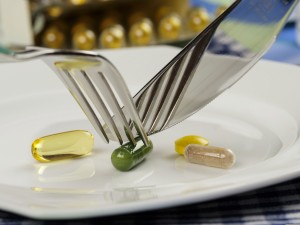Why Sodium Hyaluronate can be a food additive?
Sodium hyaluronate, the sodium salt of hyaluronic acid, is increasingly recognized as a versatile food additive. Its unique properties contribute to both the nutritional and functional aspects of various food products. This article explores the reasons why sodium hyaluronate is suitable for use in food applications.
1. Biocompatibility and Safety
Sodium hyaluronate is naturally occurring in the human body, primarily in connective tissues, skin, and synovial fluid. Its biocompatibility ensures minimal adverse reactions, making it a safe option for consumption. Regulatory agencies, such as the FDA and EFSA, recognize sodium hyaluronate as Generally Recognized as Safe (GRAS), allowing its inclusion in food products without safety concerns.
2. Functional Properties
- Moisture Retention: Its high hydrophilicity allows sodium hyaluronate to retain moisture effectively, improving the texture and shelf life of food products.
- Thickening Agent: Sodium hyaluronate acts as a natural thickening agent, providing desirable viscosity in various formulations, such as soups and gravies.
- Stabilization: It helps stabilize emulsions and suspensions, enhancing the quality of food products.
3. Nutritional Benefits
- Joint Health: As a component of synovial fluid, sodium hyaluronate can support joint lubrication and health, making it appealing for functional foods targeting joint care.
- Skin Health: Its hydrating properties can contribute to skin health, making it a popular ingredient in functional beverages and food products aimed at beauty from within.
4. Versatility in Applications
Sodium hyaluronate can be incorporated into a wide range of food products, including:
- Dairy Products: Enhancing texture and mouthfeel in yogurt and cheese.
- Beverages: Acting as a thickening and stabilizing agent in health drinks.
- Dietary Supplements: Commonly using in tablets, candies and capsules for its excellent moisturizing properties and ability to improve taste.
5. Regulatory Considerations
When used as a food additive, sodium hyaluronate must comply with food safety regulations. Its approval by food safety authorities ensures that it meets stringent quality and safety standards, allowing manufacturers to incorporate it confidently.
Sodium hyaluronate’s biocompatibility, functional properties, and nutritional benefits position it as a valuable food additive. Its ability to enhance moisture retention, texture, and overall product stability makes it suitable for various food applications. As consumer interest in functional foods grows, the use of sodium hyaluronate is likely to expand, offering promising opportunities in the food industry. By harnessing the unique properties of sodium hyaluronate, manufacturers can create innovative products that meet the evolving demands of health-conscious consumers.
Focusfreda extends the HA+ industry advantage with sodium hyaluronate, and provides one-stop dietary supplement OEM service based on sodium hyaluronate, such as tablets, capsules, softgels, powders and liquid beverage.
Ingredients
Hyaluronic Acid & Tremella Fuciformis Polysaccharide
Collagen & Chondroitin Sulfate
Contact Us
 Address
Address
 Email
Email

© Copyright - 2010-2025 : All Rights Reserved. Hot Products - Sitemap
Concentrated Sodium Hyaluronate,
Freda Sodium Hyaluronate Powder,
Sodium Hyaluronate Structure,
Food Grade Sodium Hyaluronate Powder,
Sodium Hyaluronate Powder,
Food Grade Sodium Hyaluronate,








